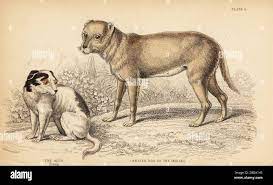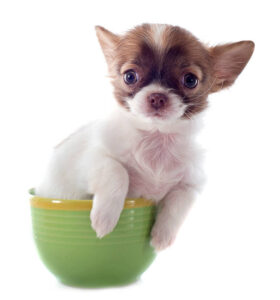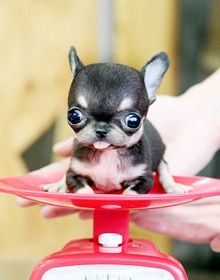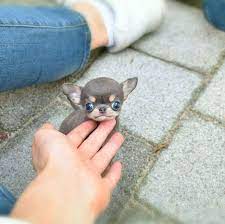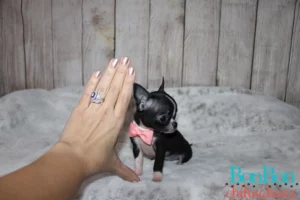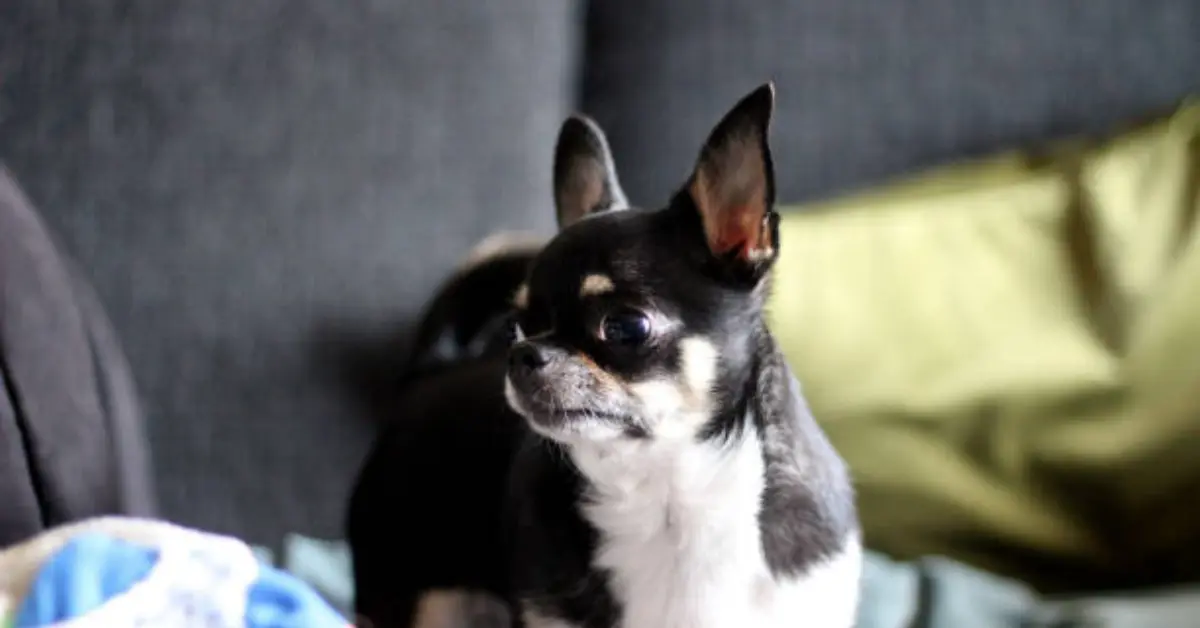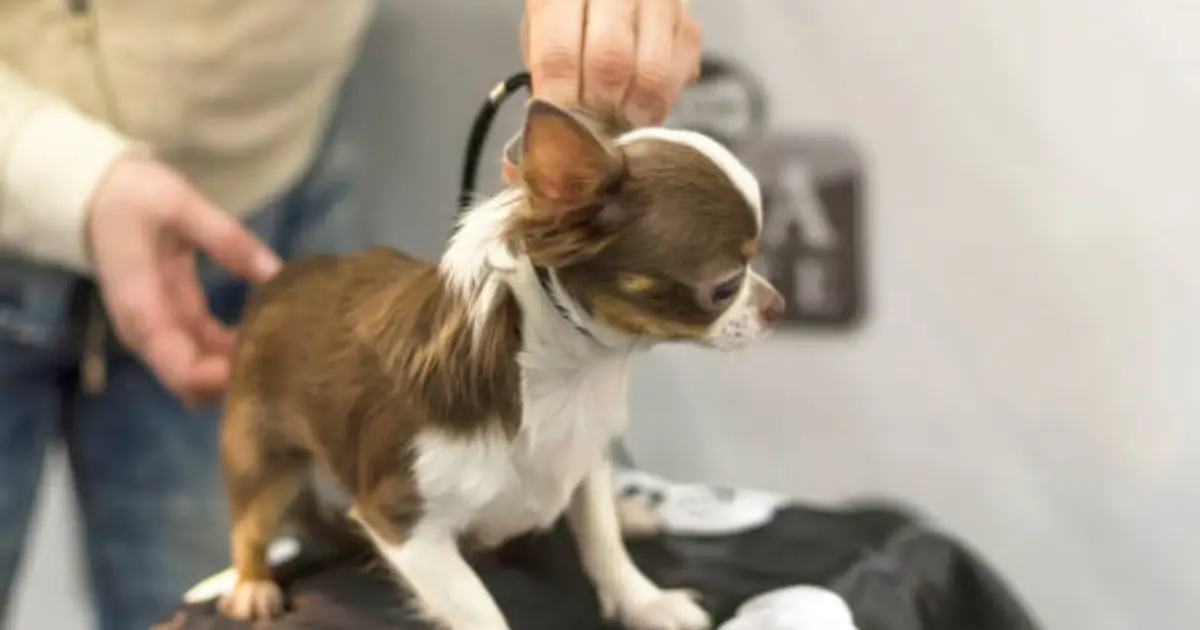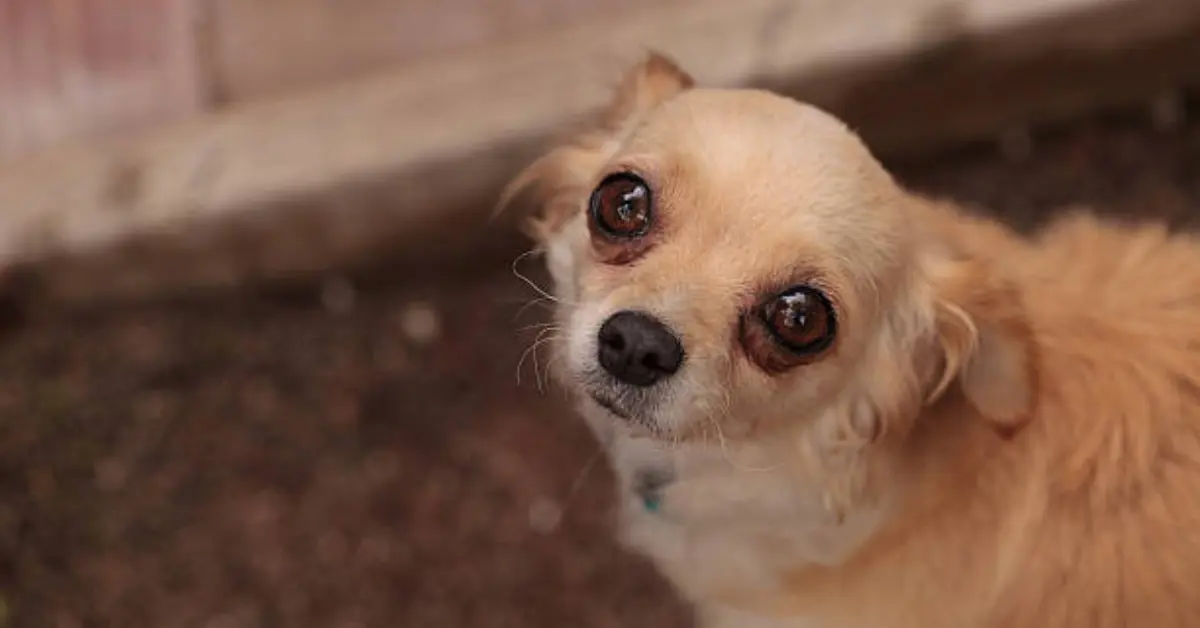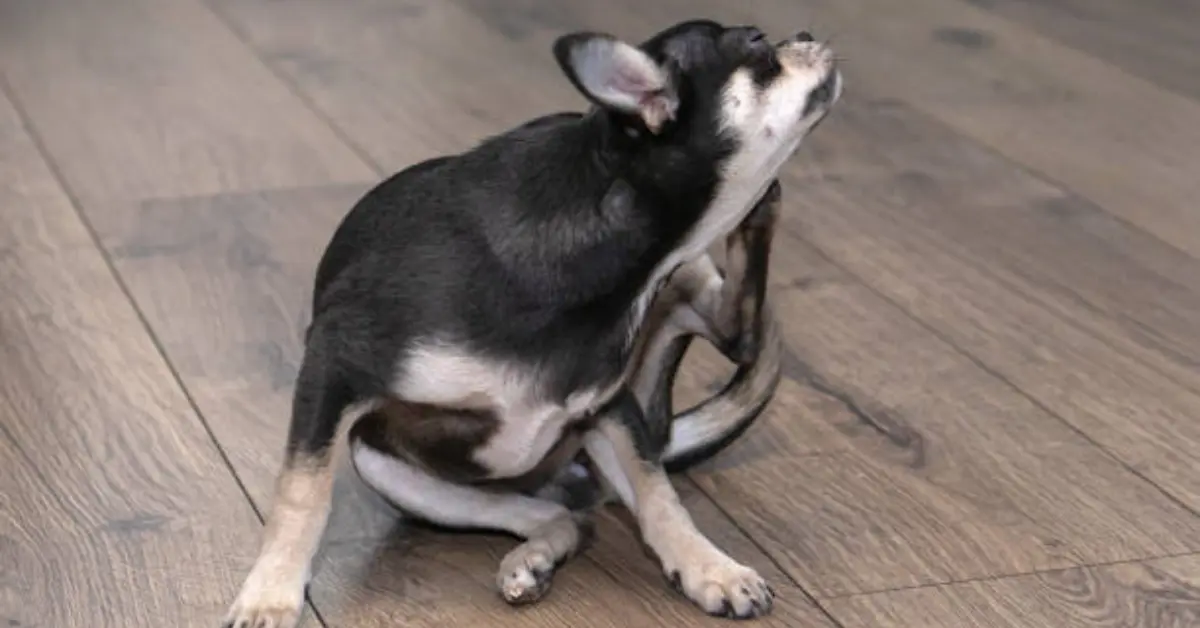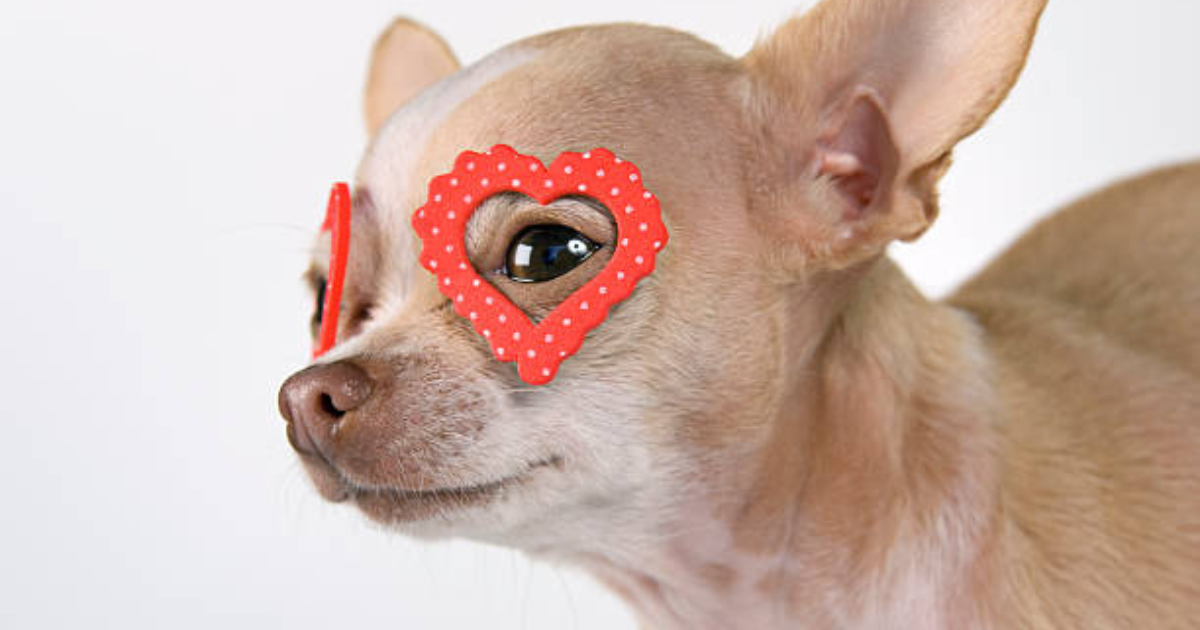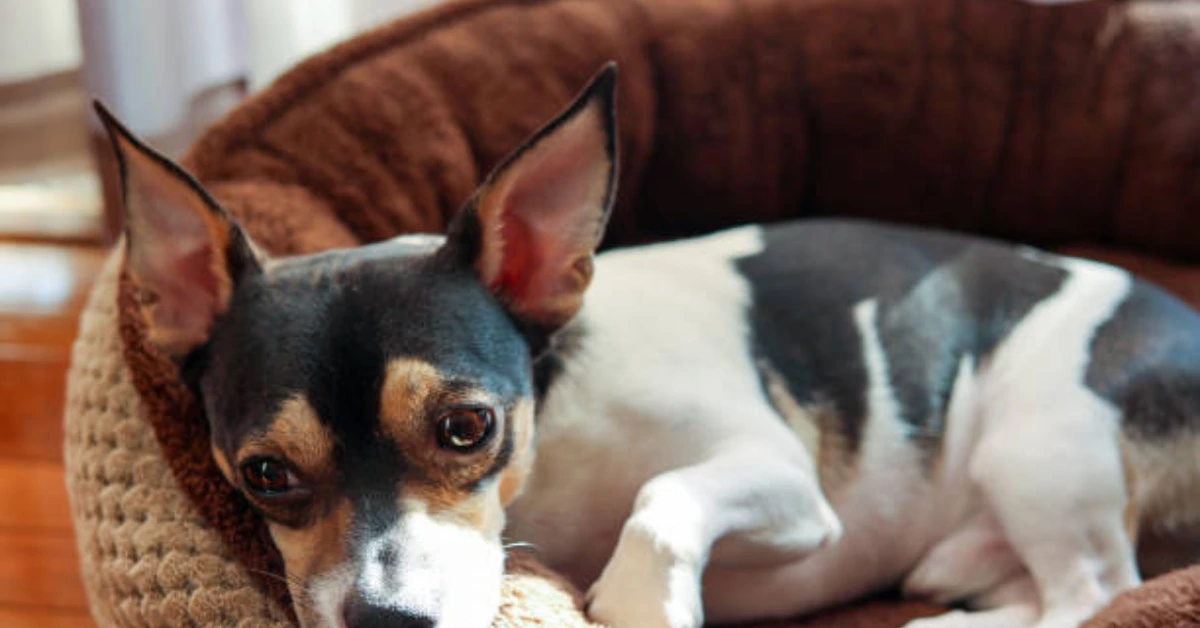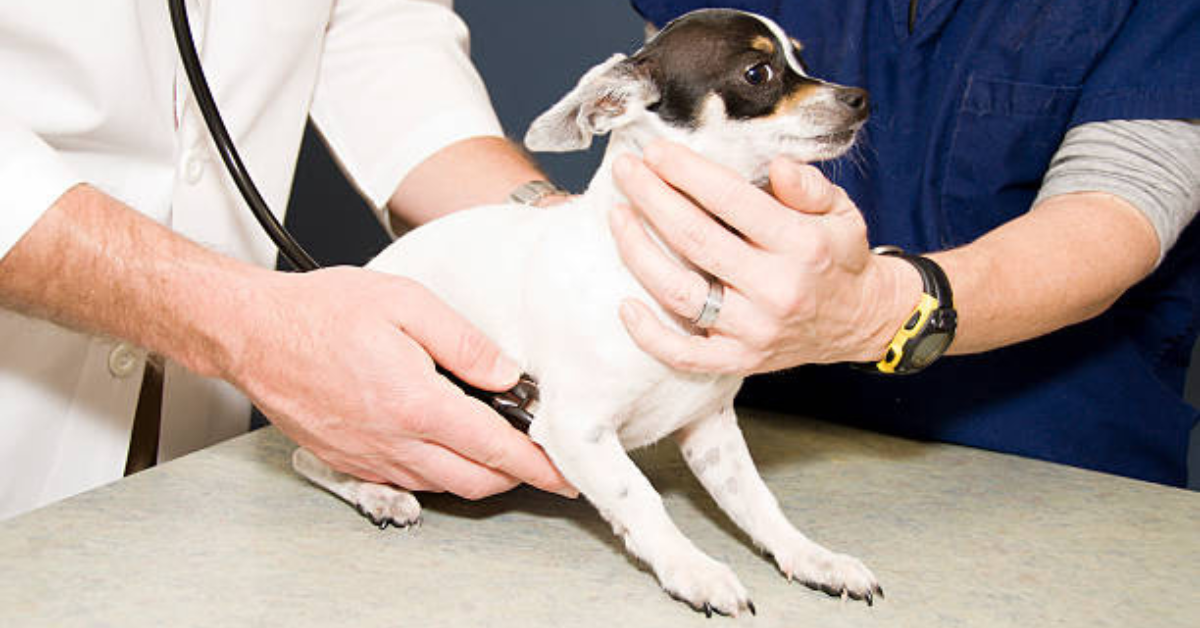Pure-bred, smaller-than-average Chihuahuas are known as “teacup” breeds. Technically speaking, they are not a distinct breed or anything of the type. Instead, they are “teacup” or “micro”-sized little Chihuahuas.
When fully mature, these canines are often only 6′′ tall and 3 pounds in weight. There is no established upper limit for this breed because they are not a fully distinct breed. These dogs are frequently much smaller than the ordinary Chihuahua, if not much smaller. It just changes. It can be difficult to predict how big a puppy will eventually get, thus some “teacup” Chihuahuas might not actually be smaller than normal Chihuahuas.
These pups’ small stature makes them especially adorable, but it also presents a few special obstacles. In this section, we will cover Everything you need to know about these tiny dogs.
Tbale of Contents
- 1 Teacup chihuahua History
- 2 The reason why the Teacup term exists
- 3 Appearance
- 4 Teacup chihuahua Personality And Temperament
- 5 Training and Exercise Need of a Teacup Chihuahua
- 6 Teacup Chihuahua Health and Care
- 7 Teacup Chihuahua Common Health Issues
- 8 Teacup Chihuahua Grooming
- 9 Adopting a Teacup Chihuahua
- 10 Experience Level Required for a Teacup Chihuahua
- 11 Quick breed summary
- 12 Last Word
Teacup chihuahua History
Chihuahuas have a lengthy and interesting history. We don’t know exactly how they developed because of their young age. Numerous theories exist. Chihuahuas were known to exist prior to the late 1800s since this is the first instance in which we have specific records. They most certainly existed far earlier than that, just without any formal records.
Whether the Chihuahua is a descendant of the Techichi dog, which was tamed by a number of Mesoamerican cultures, is a matter of controversy. These canines were likely larger than the modern Chihuahua, weighing between 10 and 20 pounds. They do, however, have a lot in common in terms of appearance. The Techichi dog was depicted in numerous ancient cultures’ paintings, monuments, and even physical remnants.
There is much discussion over how these dogs became so little and whether or not they are the ancestors of the contemporary Chihuahua. The dog might have been crossed with a smaller dog that was brought over by the Europeans, or it might have been selectively bred smaller through time. Although we don’t know how the Chihuahua and Techichi got their start, it’s possible that the latter dog evolved into the breed we know today.
According to a different idea, European dogs that were brought over by colonizers are the ancestors of the Chihuahua. A Maltese dog has peculiar physical traits that are similar to those of the Chihuahua. For instance, many Chihuahuas now have the soft place on their skulls that these ancient dogs do. Other proof that a dog similar to the Chihuahua existed in Europe before to invasion includes paintings found in the Sistine Chapel.
The genesis narrative of the Techichi is supported by science. According to one study, there is no genetic relationship between Chihuahuas and European dogs. They did find comparable DNA in other pre-Columbian dogs, though. This shows that the Chihuahua and Techichi at the very least have common ancestors.
The reason why the Teacup term exists
1. The competition. This word was once used by breeders to enhance their reputation.
Puppy mills are now despised by the Humane Society of America and other organizations. Due to this reality, several pet retailers have limited their business.
Breeders with websites are extremely familiar with how search engines operate. In order for the buyer to locate them readily, they employ specific terms on their website. phrases like “miniature chihuahua.” or ” Teacup chihuahua”. In this manner, many people will purchase a purported teacup even though it does not exist.
2. When our dog is a smaller breed than usual.
Puppies can occasionally be smaller than expected. However, this does not imply that the puppy will remain smaller as an adult. Because occasionally the smallest member of the litter will grow to be the biggest adult.
Here is the standard size of some Canine organizations :
Uk: No more than 6 lbs
AKC: 2 to 4 pounds is good.
Ckc: Up to 6 lbs
Fc: 3.3 to 6.1 lbs
The chihuahua is the smallest dog breed.
Appearance
The Teacup Chihuahua does not have any established standards. There may be disagreement about which dogs exactly belong in which group because various breeders may view different dogs differently.
The tiniest dogs in the world are chihuahuas. When fully mature, they normally stand between 6 and 10 inches tall. Most weigh 4 to 6 pounds. Anything smaller than this is normally a teacup Chihuahua. Because of this, most people categorize them as being under 4 pounds and under 6 inches tall.
Yet again, it mostly depends on whom you ask. Even though they technically fit within the size range of a normal Chihuahua, some people would still classify tiny Chihuahuas as “teacup” dogs.
Chihuahuas come in two different varieties: those with smooth hair and those with long hair. The same is true for teacup Chihuahuas. While some kennel associations classify these two variations as separate breeds, others combine them into one breed.
Most of the time, teacup Chihuahuas are prohibited from competing in conformation events since they do not meet the breed standard. Smaller dogs are, nevertheless, welcomed and even favored in some places. Chihuahuas don’t necessarily grow to be the same size as their parents as adults and don’t develop according to their size as pups. This may make it more difficult to define what constitutes a “teacup” because it is difficult to predict how big a dog will grow as it ages. For example, two teacup parents might not result in teacup puppies.
Chihuahuas can be found in pretty much any color scheme. A color or pattern can be almost anything, and some aren’t necessarily valued more highly than others. In recent years, the merle pattern has gained popularity and is becoming increasingly common in Teacup Chihuahuas.
Teacup chihuahua Personality And Temperament
The teacup chihuahua is well renowned for being self-assured and terrier-like. They are renowned for sharing traits in their temperament and behavior with other little dogs. They frequently bark a lot and at nearly everything. If you’re looking for a quieter dog, we do not advise them. It can be difficult to train them to stop barking. It’s just the way they behave!
They often belong to a single person. Also, They will form a strong bond with just one person while ignoring everyone else. These dogs have a tendency to be wary of strangers, although occasionally their need for affection surpasses this. If properly introduced and given enough time to warm up, they will make friends with other people.
If they didn’t receive enough socialization as puppies, Teacup chihuahuas may become timid. When they are young, they need to be exposed to a variety of people and animals. Otherwise, they could feel a little overawed and afraid when they meet new individuals. Since they are tiny dogs, it doesn’t take much to frighten them and trigger hostility.
Training and Exercise Need of a Teacup Chihuahua
Teacup chihuahuas Although they are not the smartest dogs around, they can learn a lot. Potty training can be challenging because of their size. Not mostly because they won’t go outside, though. They simply require frequent restroom visits because their bladders are so small. Even once they reach adulthood, this may occasionally require you to take them outside every 30 minutes or so.
For this reason, the majority of people spend money on an indoor space where their dogs can relieve themselves. If you are able to install one, doggie doors are useful. So that you don’t have to take the dog outdoors as frequently, they enable the dog to go outside on his own. Just keep in mind that these dogs are small, therefore the dog door needs to be the right size for them. For these dogs to access, many are either too heavy or sit up too high.
It is important to socialize. Teacup chihuahuas frequently show a little impatience around kids and other pets. They aren’t the friendliest dogs around and might be a little distant. When teacup chihuahuas notice that their owner is in danger, they frequently mistake visits for “trouble,” which leads to protective violence. This is why having guests over frequently while the dog is a puppy is crucial. If youngsters are not accustomed to having guests in their houses as they get older, tragedy will result.
Usually, these dogs don’t get along with other pets. Fear is frequently a powerful motivator in this sense. Many people are frightened of getting attacked or stepped on by a bigger dog. They can believe that appearing haughty and bad is the best course of action to avoid this. Numerous antisocial behaviors, including snapping, barking, and generally being unsociable, might result from this. This can be somewhat avoided by socialization, especially if it gives the dog the chance to develop social confidence.
Dogs who are confident don’t usually get terrified.
Teacup Chihuahua Health and Care
These puppies are susceptible to a variety of health issues, most of which are caused by their significantly smaller stature. These dogs, for example, frequently suffer injuries because they are more prone to them than other dogs. Since the small size of the dog causes many of these ailments, they cannot be prevented through careful breeding. Breeders would need to make the dogs bigger if they wanted to stop many of these conditions.
Your puppy must only be purchased from a reputable breeder. Otherwise, you might get a puppy that has a lot of health issues. Make careful to request the puppy’s health records as well as any health tests that either parent has done. Before being bred, all Chihuahuas should be examined for a few genetic disorders. If the breeder did not conduct these tests, they did not care about the health of the puppies.
Teacup Chihuahua Common Health Issues
Patellar Luxation
One of the more prevalent hereditary conditions that the Teacup Chihuahua is predisposed to, is this one. It occurs frequently in many smaller dogs and is caused by the kneecap moving out of alignment. The patellar (kneecap) typically rests in a groove. It may occasionally move out of position. This may be caused by a hereditary condition that prevented the bones from aligning properly, however, the damage is another possibility. Given the sensitive nature of these small canines, these are quite prevalent causes.
Collapsed Trachea
Although the exact root cause of this condition is unknown, it can be very hazardous. A dog’s trachea may collapse for any number of reasons, making it challenging for them to breathe. Without treatment, this usually results in death.
Given that particular breeds appear to be predisposed to this condition, it is probably genetic. However, the precise reason and gene that causes this illness is unknown. Although they are not significantly impacted, chihuahuas can have this illness.
Hypoglycemia
Due to their smaller size, these dogs frequently have low blood sugar. Although tiny Chihuahuas are significantly more prone to hypoglycemia than regular Chihuahuas, both breeds commonly experience this condition. When the dog is not fed frequently enough, this frequently occurs. They require frequent feedings because they are so little. This frequently entails five to six meals each day for the smallest dog. For this reason, many dog owners opt to free-feed, albeit under these circumstances the dog’s weight needs to be regularly monitored.
If the puppy is not immediately treated for this disease, it could be fatal. Dogs with this illness frequently display fatigue and listlessness. They will eventually pass out, go into fits, and die. Due to the small size of these dogs, this can happen extremely quickly. As a result of their limited stomach capacity, they prefer to digest food quickly. They are then unable to raise their blood sugar levels till they eat again.
Since most teacup Chihuahuas lack the fat reserves necessary to regulate their blood sugar under stress or during vigorous exercise, excessive exercise can also contribute to this issue.
Pulmonic Stenosis
A pulmonic valve abnormality characterizes this inherited heart disease. This flaw prevents blood from passing through the heart properly. The heart progressively enlarges as a result of having to pump blood through it more forcefully. This will eventually result in cardiac failure.
Depending on the stage and severity of the condition, different treatments are used. Early diagnosis is crucial to prevent the heart from having a chance to expand significantly. There may be no need for treatment in extremely mild cases. Surgery might be required in other circumstances, though.
Neurological Conditions
Teacup Chihuahuas can develop a number of neurological disorders. These diseases frequently entail something going wrong during the dog’s skull development, which causes the dog to experience some neurological issues. They inherited Many of these conditions. An error in the dog’s genes causes improper development. Parents, however, cannot be checked before breeding since the precise genetic causes are frequently unknown.
Some dogs, despite being in perfect health, may give birth to puppies who have neurological issues.
Teacup Chihuahua Grooming
As we already mentioned, there are two types of these dogs. They might have either long or short hair. But it doesn’t really affect their grooming routine. The long-haired dogs don’t require frequent brushing, and they also don’t need to have their nails trimmed. They are among the long-haired breeds that require the least amount of maintenance.
For both types, a brief brushing session once per week is sufficient to maintain them clean. Although the short-haired type sheds more than the long-haired one, little brushing is a must. Most dogs prefer these grooming tools over regular brushes, and a tiny rubber grooming mitt is frequently sufficient for this purpose. A pin brush may be required for long-haired dogs to reach deeper areas of their coat, however, this is frequently not necessary. As the pin brush aids in removing particles embedded in the dog’s coat, it largely relies on how dirty your dog gets.
Teacup Chihuahuas shed sparingly all year long. Depending on the weather where you live, some of them may shed particularly heavily in the spring and fall. In this situation, you might need to brush your pets more frequently every day for a short while to get rid of any extra hair they might be shedding.
They don’t usually require baths very frequently. Since they are so small, we advise you not to bathe them very often because they can become very cold very quickly. Frequently, brushing them will suffice to keep them clean. If your dog does require a wash, make sure to perform it in a warm area and properly dry them afterward. A small, wet dog can get too cold very soon.
Although they are not prone to ear infections, You must occasionally clean their ears. Every time you brush your dog, look for an accumulation of debris there and clean it with a cotton ball if necessary. Regular nail trimming is also a must. Since their nails are so small, it’s easy to cut them too close, so exercise extreme caution. If you are unsure about your abilities, you can hire a groomer to complete this task for you.
Although not as frequently as other tiny breeds, these dogs are susceptible to some dental issues. You must routinely brush your dog’s teeth because of this. Otherwise, they can experience oral issues that cost a lot of money.
Adopting a Teacup Chihuahua
These dogs are popular enough to catch the attention of numerous specialized breeders, while not being as well-liked as full-sized Chihuahuas. Today, a lot of Chihuahua breeders also produce teacup variants. They frequently accomplish this by simply breeding more little Chihuahuas and advertising the smaller puppies in their litters as “teacup” dogs.
It’s crucial to keep in mind that Chihuahuas are infamous for not growing as you might expect. Because of this, even the smallest puppy could grow to be rather enormous as an adult. It is impossible to predict how big a puppy will become. As a result, a “teacup” puppy might not grow up to be “teacup” sized. Adopting an adult Chihuahua is the only way to guarantee that you’re receiving a smaller-than-average teacup-sized dog.
Due to potential health risks, many breeders are hesitant to breed Chihuahuas who weigh less than 3 or 4 pounds. As the dog becomes smaller, many health issues may deteriorate more. Additionally, if the dog is much smaller than typical, injuries may occur more easily.
A Teacup Chihuahua will cost you between $1,500 and $3,000 on average. Gender and color are common factors that affect the price. Because certain coat colors are in demand as pet dogs, these puppies may cost a little more such as blue chihuahuas. You’ll probably spend less if you’re content to purchase a Chihuahua with “average” coloring.
You don’t always have to go for Teacup breeds if you want a Chihuahua under 4 pounds. Regular Chihuahua breeders frequently have puppies that are smaller than typical.
Experience Level Required for a Teacup Chihuahua
We only suggest These dogs for experienced dog owners. This is a result of their particular care requirements, which include frequent meals and strong interaction requirements. These dogs demand a lot of specialized care, that only knowledgeable owners can handle. Although these dogs have a steep learning curve, they are not resilient enough to tolerate errors. For instance, under-feeding a puppy might result in its demise in less than 24 hours. Also if you dropped a puppy he may sustain serious, even fatal, damage.
All of these requirements can rapidly become overwhelming for a beginner owner, especially when little errors can result in serious harm.
Quick breed summary
| Height: | 4 – 6 inches |
| Weight: | 2 – 4 pounds |
| Lifespan: | 7 – 12 years |
| Colors: | Tan, chocolate, fawn, red, cream, and Black |
| Suitable for: | People looking for companionship, small apartment, families with older children, single-pet households |
| Temperament: | Loving, loyal, fun, stubborn, and sassy |
Here is a video that shows the difference between a standard chihuahua and Full grown Teacup chihuahua. Enjoy!
Last Word
Because of their little size, teacup Chihuahuas are incredibly adorable. However, due to their diminutive stature, they are also extremely fragile dogs. They are more prone to some illnesses, the majority of which are hereditary or caused by their little size.
Their training and socialization requirements are quite demanding. Since their bladders are quite small, potty training them can be difficult. Many people choose not to potty train their dog in favor of alternative techniques like an indoor “grass” patch. When it comes to strangers and other pets, they frequently show fear and aloofness. Separation anxiety and aggressive defense mechanisms are prevalent.
To thrive, these dogs require particular care. In the absence of that, they risk getting sick and becoming hostile. But if you take care of them, they may make wonderful, portable friends. For people who stay a lot of time at home and want a dog that will be truly loyal to them, even if it means investing a little bit more time and effort in their puppy, we propose these breeds.
YOU MAY ALSO LIKE:
The Price Of A Teacup Chihuahua
hairless chihuahuas- All you need to know
Are Merle Chihuahuas Unhealthy?
Advertisement


